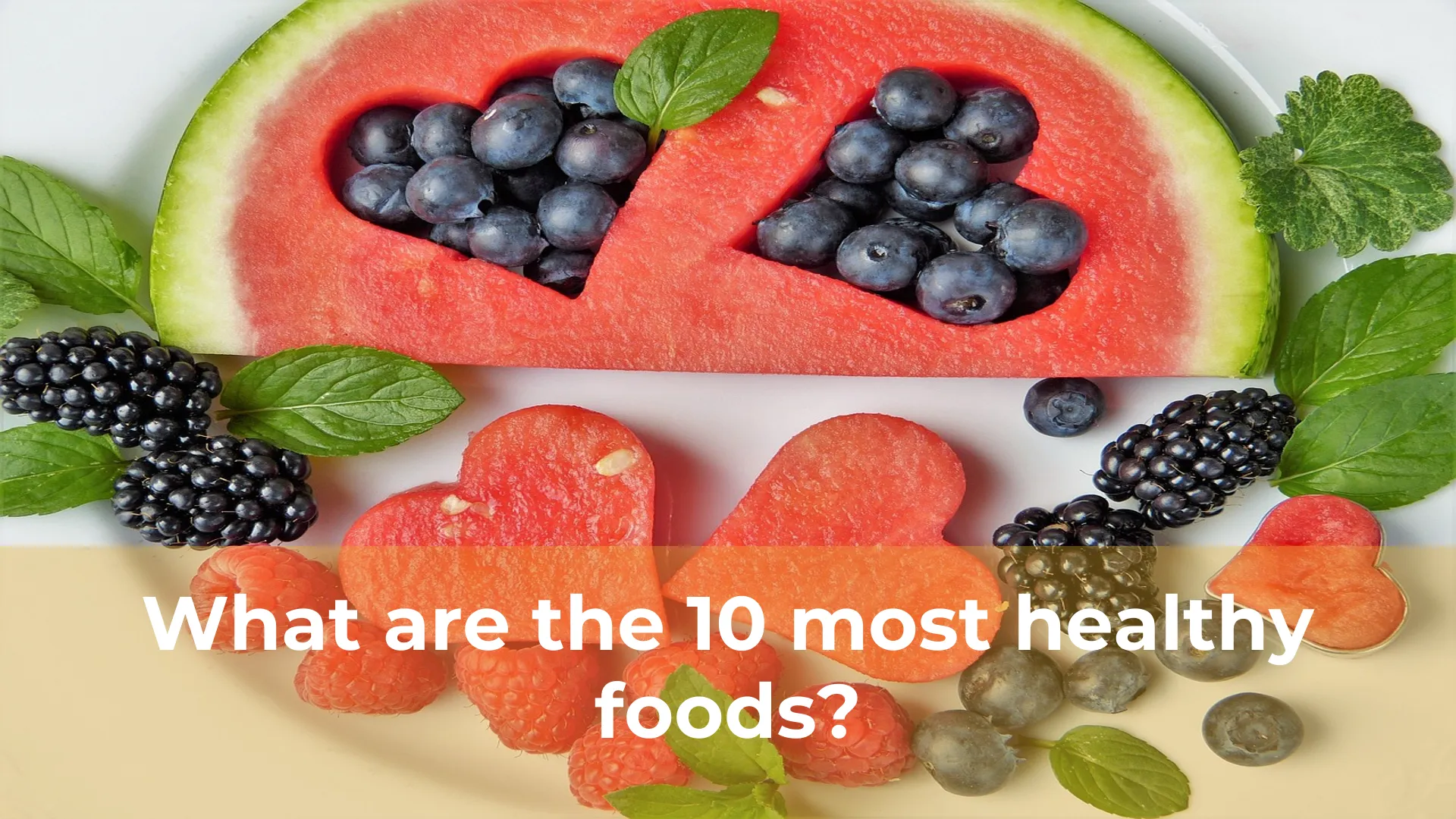What are the 10 most healthy foods?
Are you curious about the healthiest foods you should be including in your diet? Look no further! We have compiled a list of the top 10 most healthy foods that are not only delicious but also packed with essential nutrients. Incorporating these superfoods into your daily meals can help boost your immune system, improve your overall well-being, and maintain a healthy weight.
From vibrant fruits and vegetables to lean proteins and nutrient-dense grains, this comprehensive guide will provide you with a variety of options to choose from. Discover the power of nutrient-rich spinach, the heart-healthy benefits of salmon, and the antioxidant properties of blueberries. Whether you are a health enthusiast looking to improve your diet or someone searching for ways to make healthier choices, this article is your ultimate guide to the most nutritious foods available.
1. Leafy Green Vegetables
Leafy green vegetables are nutritional powerhouses that should be a staple in everyone’s diet. Packed with vitamins, minerals, and antioxidants, these greens offer a wide range of health benefits. Spinach, kale, arugula, and collard greens are just a few examples of leafy greens that are loaded with nutrients. They are low in calories and high in fiber, making them great for weight management. Leafy greens are also rich in vitamin K, which plays a crucial role in bone health and blood clotting. Additionally, they are a good source of folate, a B-vitamin that helps in cell growth and development. Including leafy greens in your meals can improve your overall well-being and contribute to a balanced and nutritious diet.
2. Berries
Berries are a delightful and nutritious addition to any diet, offering a range of health benefits and a burst of flavor. From strawberries and blueberries to raspberries and blackberries, these small fruits pack a powerful punch. Not only are they low in calories, but they are also loaded with antioxidants, vitamins, and minerals that promote overall well-being. Berries are known for their anti-inflammatory properties, which can help reduce the risk of chronic diseases such as heart disease and cancer. They are also a great source of fiber, aiding in digestion and promoting a healthy gut. Whether enjoyed on their own, added to smoothies, or used in various recipes, berries are a versatile and delicious way to boost your health.
3. Whole Grains
Whole grains are an essential part of a healthy diet, providing a wide range of nutrients and health benefits. Unlike refined grains, which have been stripped of their bran and germ, whole grains contain all parts of the grain, including the fiber-rich bran, the nutrient-packed germ, and the starchy endosperm. This means that whole grains are a great source of dietary fiber, vitamins, minerals, and antioxidants.
Research has consistently shown that consuming whole grains is associated with a lower risk of chronic diseases, such as heart disease, type 2 diabetes, and certain types of cancer. The fiber content in whole grains helps regulate blood sugar levels, improve cholesterol levels, and promote healthy digestion. Additionally, the complex carbohydrates found in whole grains provide sustained energy, making them an excellent choice for maintaining a balanced diet and preventing weight gain.
Incorporating whole grains into your meals is easier than you might think. Start by replacing refined grains with whole grain alternatives, such as whole wheat bread, brown rice, quinoa, and whole grain pasta. Experiment with different recipes that feature whole grains, like hearty salads, grain bowls, and homemade granola bars. With their delicious nutty flavor and versatile nature, whole grains can add both nutrition and taste to your meals.

